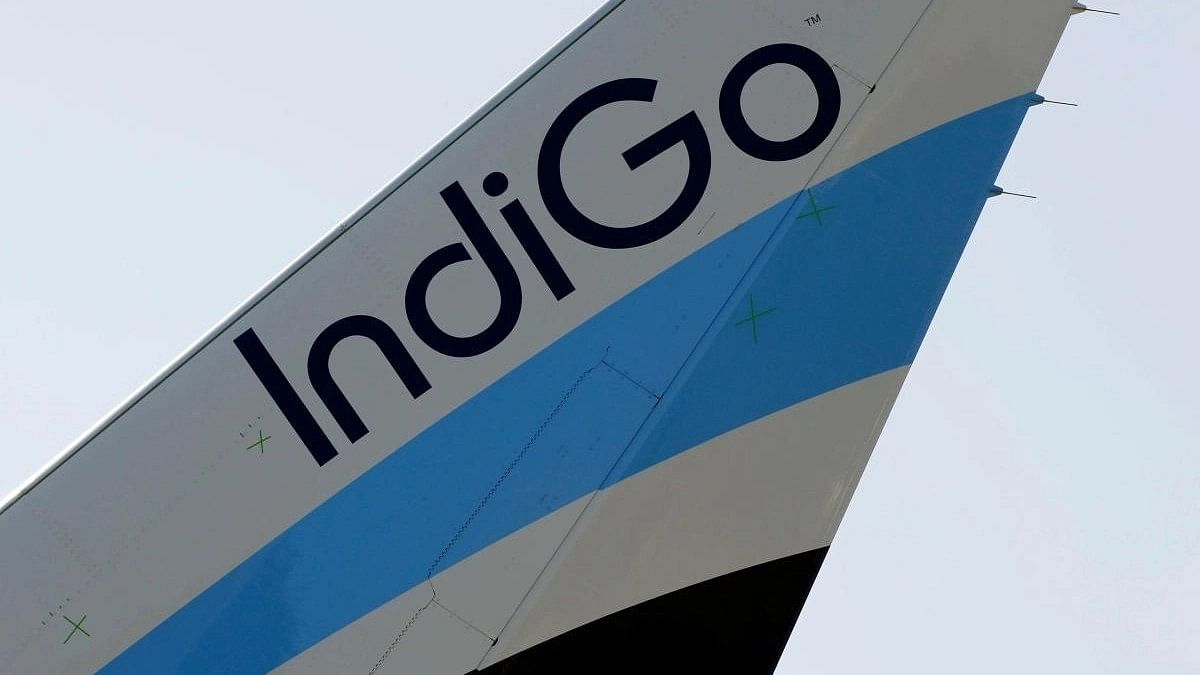
The logo of IndiGo Airlines.
Credit: Reuters Photo
Bengaluru: The profit after tax (PAT) of India’s biggest airline in terms of market share, fell by 11.7% year-on-year (YoY), in the first quarter of FY25, on account of rising leasing costs it has been incurring, with rising traffic on one side and grounding of many of Airbus A320neo aircraft, on account of their malfunction Pratt & Whitney engines, on the other, pushing it to fall back on a leased aircraft.
In a post-earnings media briefing on Friday, IndiGo's Chief Financial Officer Gaurav Negi said "Aircraft on ground remains at mid-70s." The airline has been increasingly depending on leased aircraft for its operations in a bid to meet the soaring demand in the fastest growing aviation market. The airline saw an over three-fold increase in its aircraft leasing costs going up to Rs 624 crore, coupled with a depreciating rupee making for a foreign exchange loss of 149.5% of Rs 57.5 crore.
According to the stock exchange filing, the capitalised operating lease liability, as of June 30, 2024, stood at Rs 44,957 crore. The total debt, including the capitalised operating lease liability, was Rs 52,526 crore.
The airline’s net profit fell to Rs 2,728.8 crore, against Rs 3,090.6 crore in Q1 FY24. For this, it also blamed the rise price of aviation turbine fuel (ATF), which pushed its fuel costs up by 22% (YoY) to Rs 6,416.5 crore. Fuel accounts for 37.1% of the airline’s total expenses, which climbed by 24% (YoY) to Rs 17,445 crore.
Given the rising demand for air travel, Indigo saw a YoY rise in its revenue at Rs 19,571 crore for the quarter under review. During the quarter, the airline flew 27.8 million passengers, up from 26.2 million it did in the year ago period. Available seat kilometers (ASK) rose 11% (YOY) to 36.3 billion, while revenue passenger kilometers (RPK) rose 8.7% (YoY) to 31.5 billion.
Then again, the airline pointed out that while its revenue per available seat kilometer (RASK) stood at Rs 5.4, its cost per ASK (CASK) was at Rs 4.62, clearly making for a thinner margin.
Going forward, the airline is counting on the number of its grounded aircraft to come down, though it will continue to lease aircraft to meet demand. Also its order for over 975 aircraft will enable them to receive more than one aircraft a week, mitigating the issue greatly, according to Negi.